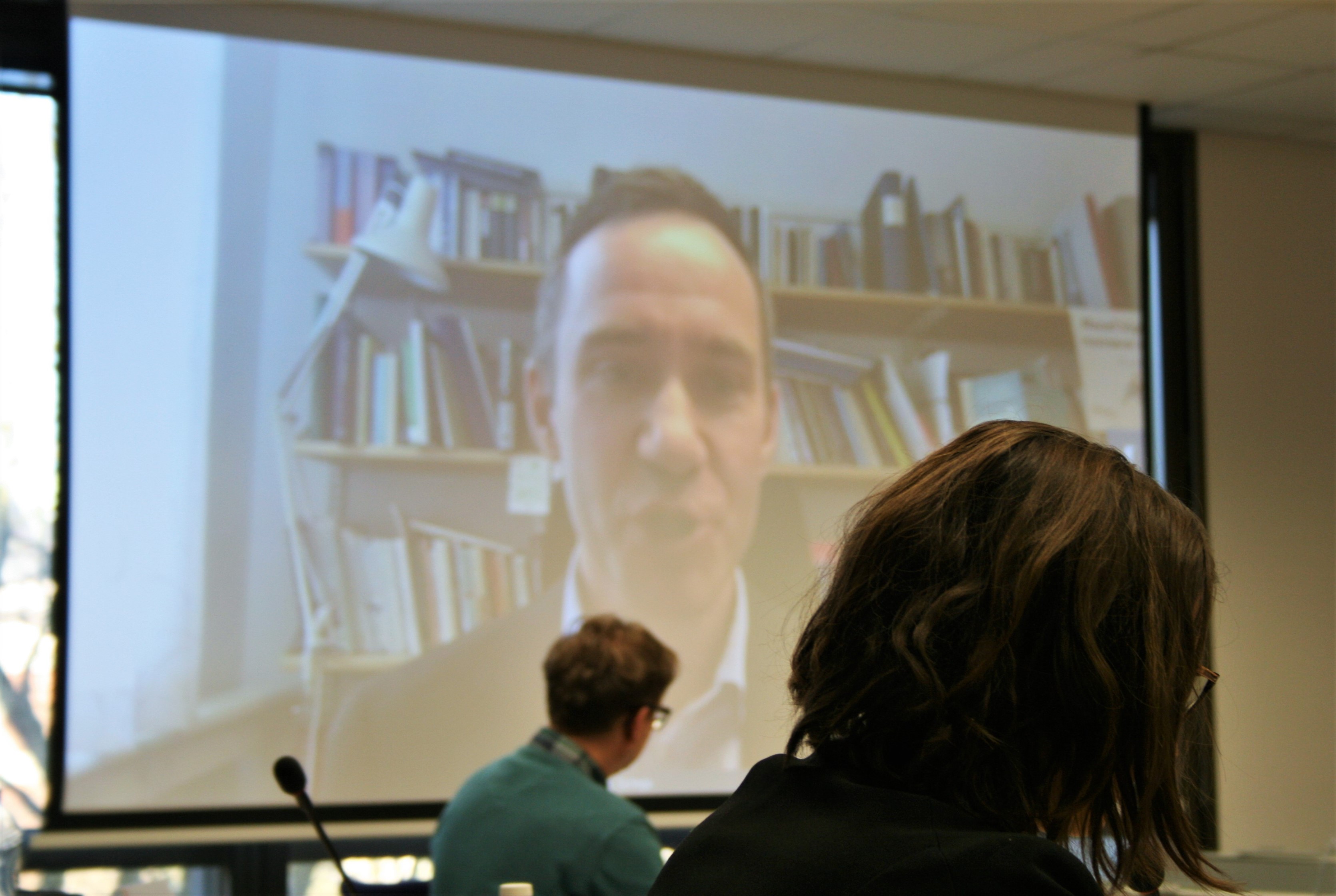European Sectoral Social Dialogue in Education – Trade unions and employers focus on higher education
Published:
Related topics
Once a year the European Social Partners for Education, the organisations which represent trade unions and employers, dedicate a European Social Dialogue meeting to issues in the higher education sector. On 12 February 2020, HE-specialised members of ETUCE and the European Federation of Education Employers (EFEE) met in Brussels. The addressed topics including the place of teaching in academic careers, developments in EU higher education policy and the importance of academic freedom and integrity.
The joint meeting was kicked off by a presentation from Max Scheja, Professor of Higher Education at Stockholm University. Prof Scheja joined by videolink to talk about university teaching and who it fits into career pathways in higher education (HE). He stressed that learning is a complex process where students must contextualise and construct their knowledge. Students’ academic understanding is heavily influenced by all aspects of their teaching environment, and they will often experience a delay in understanding the content of any one course while placing it in the context of other knowledge and experiences. University teachers should engage in self-reflection and an ongoing pedagogical conversation, which will impact their professional development and boost their sense of being a university teacher. This approach will also strengthen their relationship with students.
In the debate which followed, social partner representatives discussed the relative positions of teaching and research in academia. They tackled several important issues, such as the importance of recognition and reward in the development of academics’ professional skills and career pathways. The social partners acknowledged the overall lack of social recognition for university staff, and how it is more difficult to measure the quality of a higher education worker’s teaching than their research. They proposed a shift in focus from individual excellence to cooperation and a call for joint international actions. Participants also recognised the need for greater cooperation and healthy working conditions in HE institutions.
Marc Goffart from the European Commission presented the priorities of the new European Commission in the field of education and research, in line with the renewed EU agenda for HE. Current priorities include transnational learning mobility, the recognition of diplomas across the EU, the attractiveness of European universities, academic integrity and the detection of workplace misconduct.
In the afternoon, the social partner representatives broke into three small working groups to discuss various factors which shape quality teaching and learning.
The first working group discussed changing financing models, mobility and technology. Participants pointed out that universities lack funding to support professional development and training or provide mobility for teaching and research staff. They questioned the meaning of performance-based funding and reflected on the impact of other sources of financing – both public and private.
The second working group discussed the recruitment of teaching personnel, equality and non-discrimination, professional status and precariousness. The uncertainty of employment in HE is making it difficult to recruit and retain personnel. Participants identified good practices which could counter this dynamic. Among the idea they raised were workforce planning, quality induction procedures, support for professional development, better work/life balance and greater inclusion of minorities at all teaching levels.
The third working group discussed academic freedom, working conditions and professional development. Members of this group identified various barriers to academic freedom and career growth related to funding, gender inequality and a lack of professional identity.
ETUCE and EFEE agreed to intensify their joint work on teaching and learning in HE. By doing so they hope to contribute, as European and national social partners, to more supportive working environments for staff in HE, which will ultimately benefit all students.